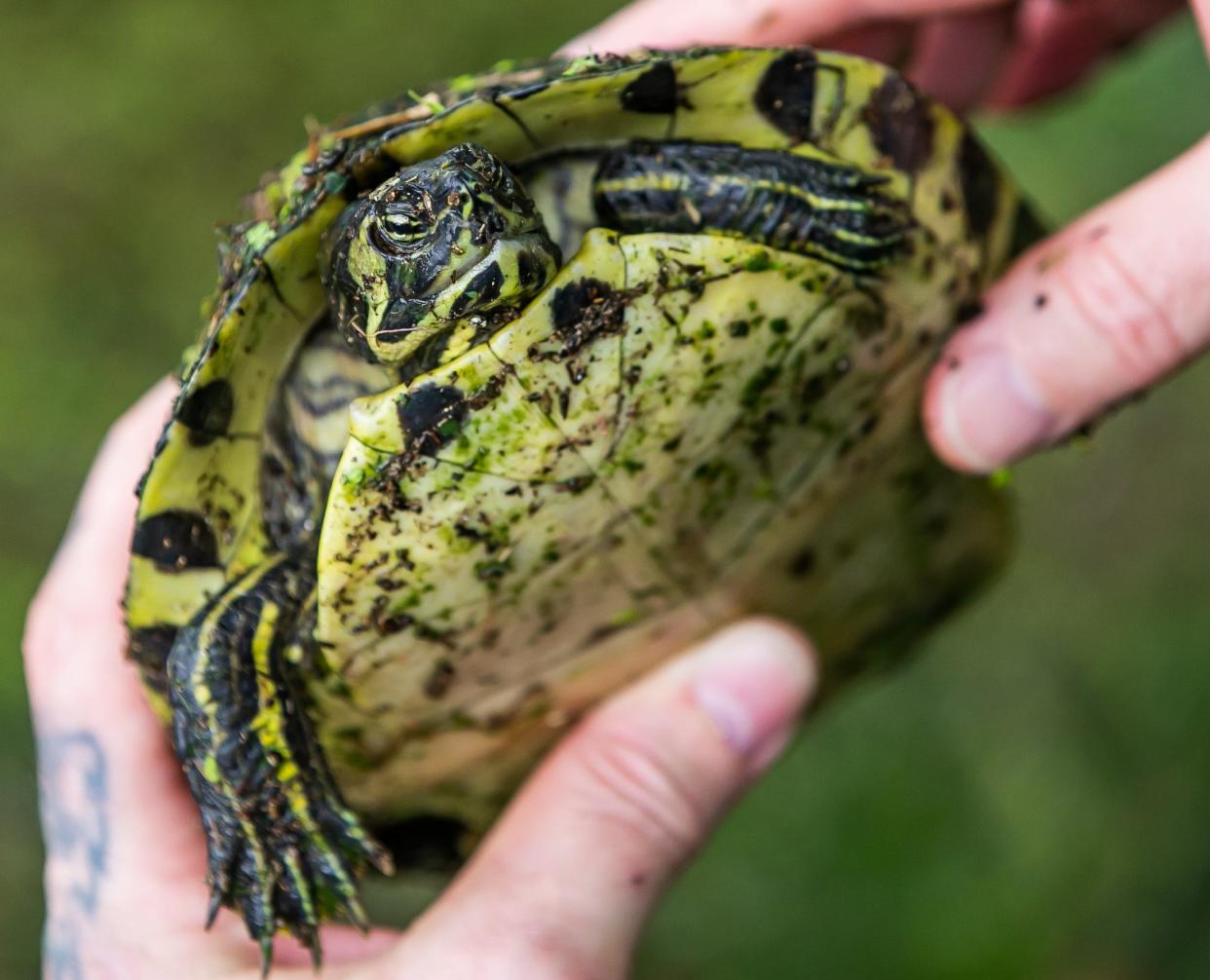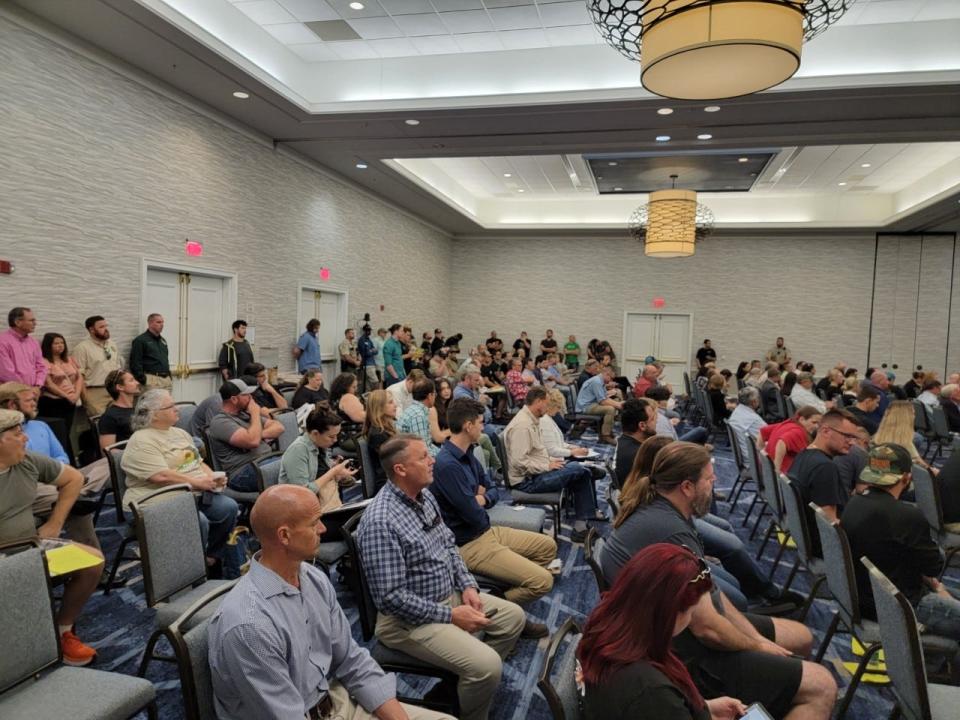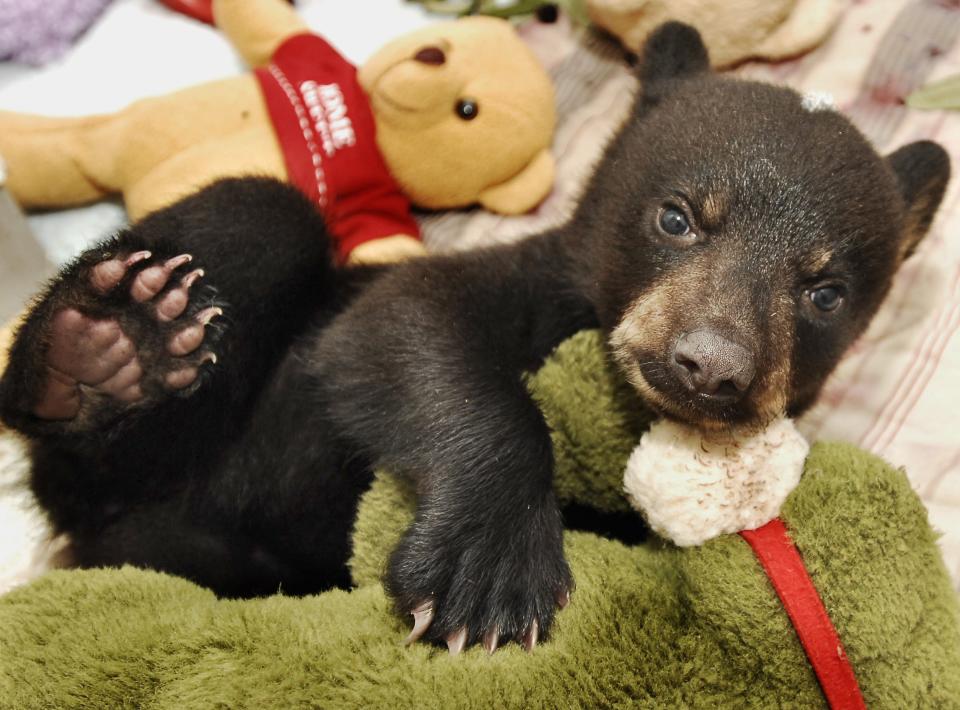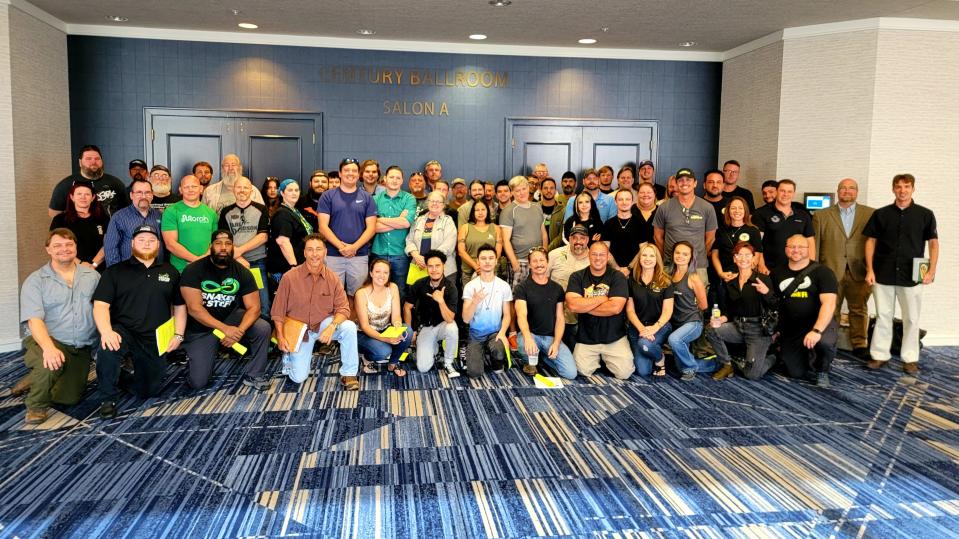FWC changes captive wildlife permit rules; reptile, animal keepers want more clarity

GAINESVILLE — Captive wildlife breeders, exhibitors and owners traveled from across the state on Tuesday morning to the Hilton University of Florida Conference Center in Gainesville to voice concerns about a change to a Florida Fish and Wildlife Conservation Commission rule regarding captive wildlife permits.
While the rule is intended to prevent “bad apples” from continuing to own captive wildlife after a permit revocation or non-renewal, those in the industry are seeking more clarity on what constitutes revocation, and many fear that one minor violation could ruin their livelihoods.
Though the commission unanimously approved the wording of the rule, it may consider further clarification or a point system for violations.
Florida's 'time bomb': Invasive species may explode with climate change, FWC warns
Orange Lake revamp: Marion County boat ramp and park to undergo nearly $2 million in renovations
Other news: Menacing alligator, almost 12 feet long, killed in Silver River by state-licensed trapper
“None of us here would disagree that bad actors need to be out, people that are poaching animals, they’re breaking existing laws, they’re keeping animals in inhumane conditions. They need to go, but this rule still has so many ambiguities,” Curt Harbsmeier, an attorney from Lakeland and member of the United States Association of Reptile Keepers Florida, told commissioners.

What does the rule change include?
The rule in question, 68A-6.003 of the Florida Administrative Code, concerns those who breed, sell and exhibit captive native or non-native wildlife for which a permit is required.
Without the amended language, the rule allowed individuals who had their permits revoked or non-renewed for any number of reasons to continue to be involved with the animals and sell or exhibit wildlife.
The rule change states that such a person would have 90 days after final administrative action to lawfully dispose of the captive wildlife that was previously authorized under the permit.
It also outlined guidelines for transferring the animals, including that they cannot be sold or given to any entity where that person is an owner, employee or other agent, or holds any interest. Permits also cannot be issued to entities where such an individual is involved.

The person cannot exhibit or sell captive wildlife for three years following the revocation.
“In addition to strengthening public safety and animal welfare, this proposed rule also protects legitimate, law-abiding captive wildlife operators from unfair and unscrupulous competition,” Maj. Grant Burton, section leader of captive wildlife for FWC, said in a presentation.
Reptile and other wildlife keepers seek clarity
Over 60 stakeholders in the captive wildlife industry attended the meeting, and over 30 spoke during the public comment period, most of whom were in the reptile business. They were supportive of initiatives to punish bad actors but also voiced concerns about the transfer rules and 90-day disposal period.
More than anything, attendees wanted clarity on what type of violation would result in loss of permit and the potential closure of their business.

“Clarification and transparency are lacking about what violations do or should constitute license revocation,” Michael Cole, a USARK FL board member, said. “Let’s clarify this thing with a point system and put it in writing. Leaving Floridians’ livelihoods, businesses, hobbies and pets open to wide interpretation … is scary to all permit holders, especially those of us in a reptile community which has been constantly under fire for the last several years.”
FWC staff stated that the violations that trigger revocations are not changing and pointed to Chapter 379.4015 of the Florida Statutes, which specifies non-native and captive wildlife penalties.
“The court may order the suspension or revocation of any license or permit issued to a person to possess captive wildlife pursuant to this chapter if that person commits a criminal offense or a noncriminal infraction as specified under this section,” it reads.
Opponents questioned whether smaller violations or even warnings, which FWC said are documented as violations, like paperwork issues or inventory errors could be grounds for violation and therefore revocation due to vague wording.

"It says a violation can result in a revocation of license. Well, what level of infraction?” Christopher Dies of Green Swamp Exotics asked. “During my first inspection years ago, the officer said something as simple as a smudge on a glass can be grounds for a citation or a warning, and should that hold the same ramifications of a neglected animal?”
One speaker likened it to getting your driver’s license taken away for having a taillight out. Another made the analogy that it's like having the same punishment for not wearing a seatbelt and driving under the influence.
Commission open to further discussion
“Revocations and non-renewals of this type are rare, and generally occur after serious violations have been documented,” Burton had previously stated, also estimating that only 0.52% of captive wildlife permit applications would be revoked or non-renewed.
Over the last six and a half years, he said, only 58 permits were denied for a single violation. Of those, 38 were third-degree felonies for falsifying information about qualifications. The other 20 were felonies regarding animal cruelty and neglect, possession without a permit or interstate wildlife trafficking.
Animal breeders and exhibitors still sought more of a black-and-white explanation or a list of what would trigger revocations. In addition to a point system, some suggested a way to notify permit holders if they are approaching that point.
“I encourage our staff and all these stakeholders, we will get together if there’s more that needs to be done,” Chairman Rodney Barreto said. “These rules and a point system and violations and all that, that’s not today’s conversation.”
USARK FL Director of Media Daniel Parker said the commission directed staff to work further with the organization to consider clarifying the language, developing a hierarchy of violations and assessing penalties based on the severity of violations.
“I really, really want you to work with us because the last thing we want – and you’re going to hear this from me more than once is another python, another tegu lizard and more iguanas,” Barreto concluded.
Contact reporter Danielle Johnson at djohnson@gannett.com.
This article originally appeared on Ocala Star-Banner: FWC captive wildlife rule change requires violators to give up animals

